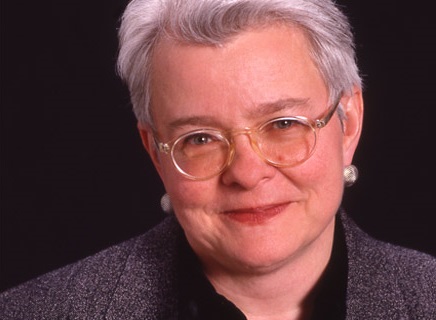
If Don Juan lived today, what would he be?
For playwright Paula Vogel, judging from her newest play Don Juan Comes Home from Iraq, he would be a philandering Marine. For the veteran (no pun intended) playwright, putting the lothario in the military was a natural fit.
“For a long time, I’ve had an obsession with Don Juan—someone who treats other people as if they’re not sentient beings, as though they’re just bodies,” Vogel says. To her, that archetype is similar to the modern military training regiment, which she considers dehumanizing. “What we do to people by creating a military that sequesters them from America, and actually cloisters them from our own policies and our own involvement and our own guilt—we’ve done something really terrible.”
Don Juan Comes Home from Iraq is a riff on an existing riff: Ödön von Horváth’s Don Juan Comes Back from the War, which transformed the eponymous womanizer into a shell-shocked soldier returning from World War I. In Don Juan Comes Home from Iraq, he is now an Iraq War veteran with PTSD, wandering through Philadelphia looking for his long-lost girlfriend. The play is currently running through April 20 at the Philly-based Wilma Theater, directed by Blanka Zizka, who is also the Wilma’s artistic director.
Vogel first read Horváth’s play in her twenties and describes her play as a “homage” to the artist. This new Don Juan also tackles more contemporary, headline-generating issues such as gender roles and sexual assault in the military. And the City of Brotherly Love is not just a setting—it’s a character in the piece, with historical monuments such as the Benjamin Franklin National Memorial and Tun Tavern (birthplace of the Marine Corps in 1775) making cameos. As part of her research, Vogel spent weeks wandering the streets of the city. She also led writing workshops for veterans in Philadelphia; some of those servicepeople acted as dramaturgs on the play.
The play is fractured in structure, with Don Juan wandering through a dreamscape Philly, where what is real and what is a hallucination is blurred. Vogel sees her Don Juan as a cautionary tale, as was its 17th-century inspiration. “The original Don Juan is a morality play,” she explains. “I think it’s a great parable for America. We are being consumed by our own desires—for faster fuels, for consumerism, all of our physical desires. Like Don Juan, we are living in the now, instead of looking toward the future.”

